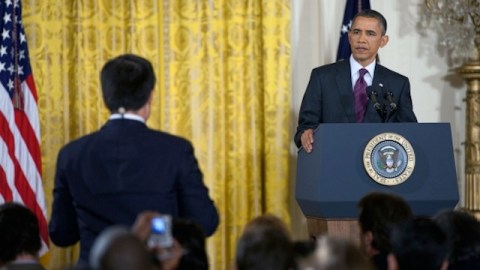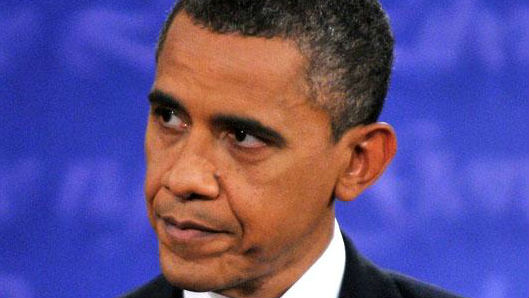Why Politics Is Rude

Washington was scandalized recently when MSNBC analyst Mark Halperin called President Obama “a dick” on Morning Joe. Halperin quickly apologized and was suspended for the remark, which he admitted was “unacceptable.” The White House told MSNBC that Halperin’s comment was “inappropriate.” Halperin’s remark certainly was obnoxious, and in my opinion it was just about worthless as political commentary. But I couldn’t personally care less if a political commentator thinks the president or any other politician is a dick.
We focus far too much on the gaffes of politicians and commentators. We fret endlessly about the delicate feelings of our politicians. And politicians—whose feelings I hope are not actually so delicate—are always happy to complain about the incivility of their critics rather than to address their substantive criticism. The real problem with Halperin’s comment was not that he was being impolite. It was that Halperin was wrong to suggest Obama crossed a line by being sharply critical of Congress’ lack of progress on raising the debt ceiling—Obama said that his daughters were better at doing their homework on time.
As Greg Sargent says, politics is supposed to be a “rough clash of visions.” With the credit-worthiness and long-term health of the nation at stake in the debt ceiling talks, some strong words from both sides are probably in order. With so much at stake, it’s not at all surprising our political leaders think their opponents’ ideas are dangerous and dishonest. And it’s perfectly appropriate in a democracy that they should make that case to the public.
The truth is, in any case, that when you are on a microphone all the time, you’re going to say some stupid or obnoxious things. The media has had a field day with presidential candidate Michele Bachmann’s recent claim that the founding fathers “worked tirelessly until slavery was no more in the United States”—some of the founding fathers did oppose slavery, but as a group they nevertheless enshrined it in the Constitution—and the fact that she apparently confused the actor John Wayne and serial killer John Wayne Gacy. But, as Jonathan Bernstein says, while we snark about Bachmann’s poor grasp of American history, we let her more substantial claims that worries about defaulting on the U.S. debt are just “scare tactics” and that eliminating the minimum wage would “virtually wipe out unemployment” pass relatively unquestioned.
These are precisely the kind of real issues we should be debating—and debating fiercely. Gossiping about whether politicians are rude or have gotten all their details right is just a waste of time, and distracts us from what actually matters.
Photo credit: Lawrence Jackson





